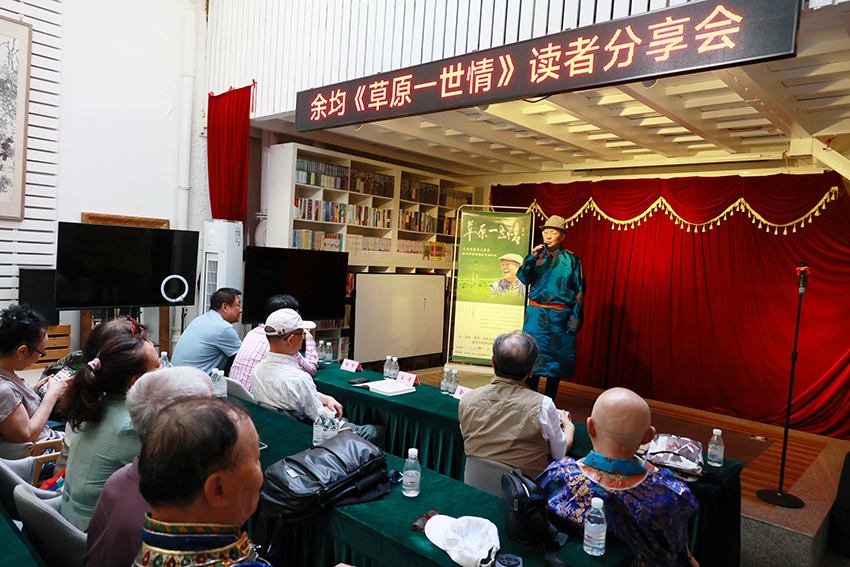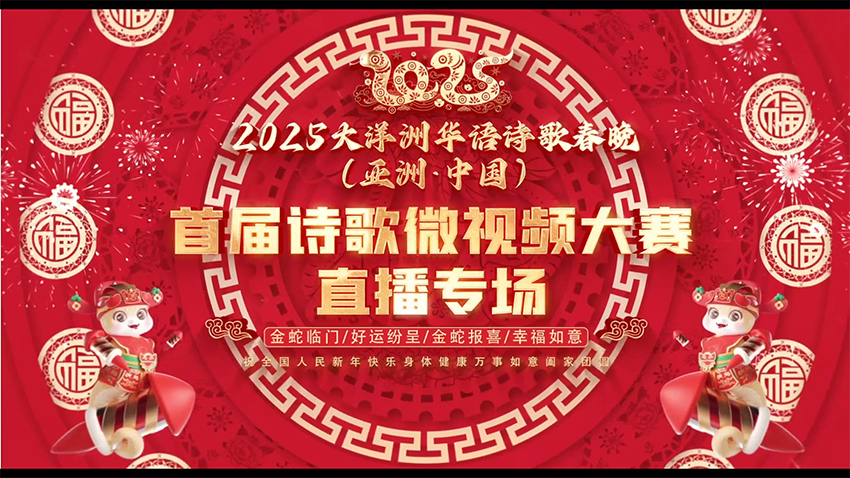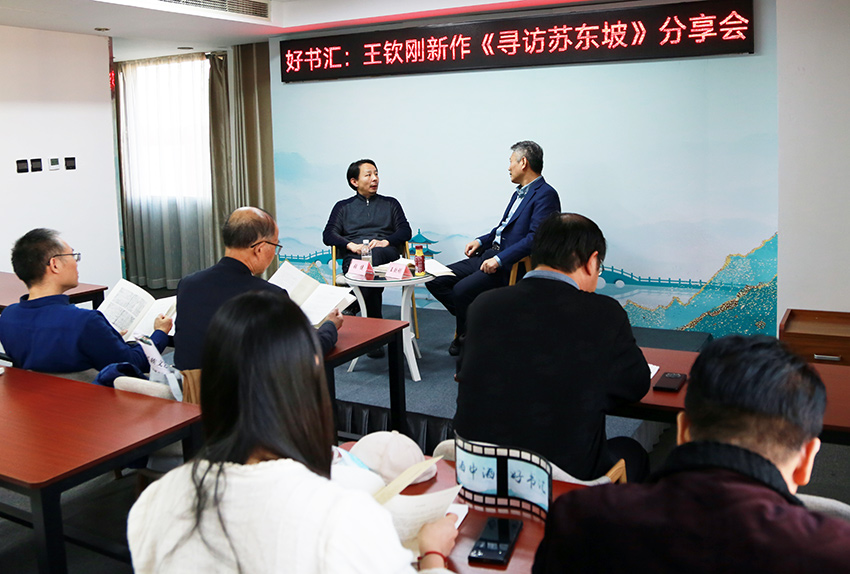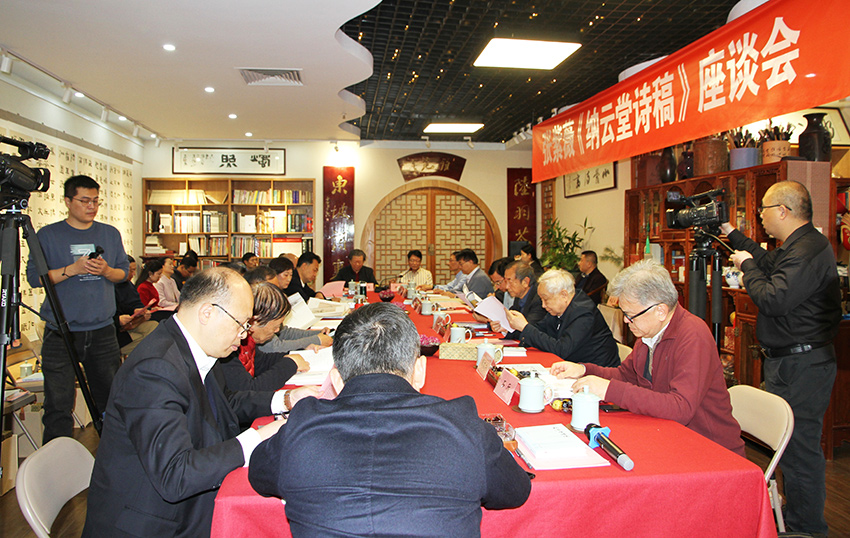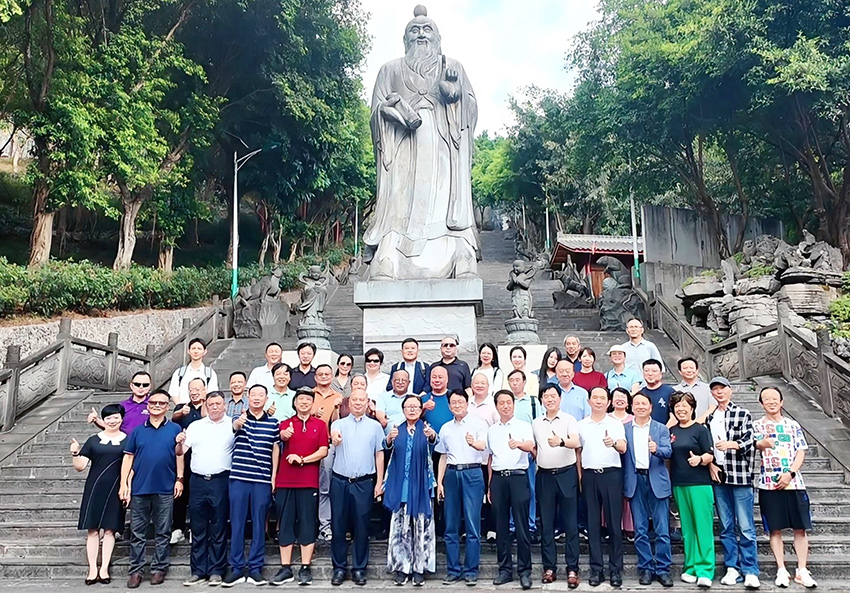吉狄馬加獲2017年度波蘭雅尼茨基文學獎
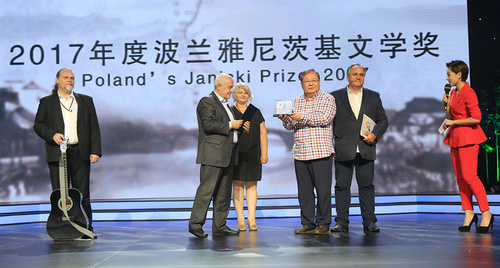
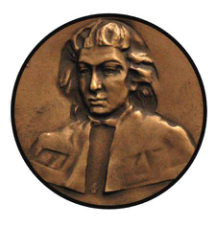
編者按:
雅尼茨基文學獎于20世紀90年代初期創(chuàng)立于波蘭,由季刊《隱喻》出資贊助。該刊編輯去世后,該獎項改由哲學藝術季刊《主題》主辦。該獎有國際特色,推動了藝術、文學和音樂及新聞報道的原創(chuàng)性、創(chuàng)造性活動。該獎項現(xiàn)在的評委會包含來自不同國家的知識分子、作家、教授、評論家和藝術家。6月22日,2017年度波蘭雅尼茨基文學獎授予中國詩人吉狄馬加。授獎詞如下:
20170623111317
雅尼茨基文學獎授獎詞:
吉狄馬加是最偉大的中國當代詩人之一,他的詩既不追求復雜的隱喻,也不去誘惑那些熱衷復雜語言的讀者,它給出一種純凈的、敘述的詩歌類型,其驚人之處在于那些精確的警句,在于其表達心靈瞬間狀態(tài)和神靈預兆的能力。這是對家族紐帶的持續(xù)關注,對一個特定民族的持續(xù)歸屬感,這個民族始終保留其各種儀式,并使它們升華為一種完整的文化。這一文化中的許多藝術杰作以及民族史詩《勒俄特依》,借助畢摩之口代代相傳。吉狄馬加繼承畢摩的傳統(tǒng),創(chuàng)作出能被中國和全世界廣大讀者所接受的現(xiàn)代詩歌。他的詩作被越來越多地譯成外文,每一部譯作均能在新的語言中得到完美的呈現(xiàn)。這歸功于他的詩歌主題上的普世性和語言上的輕盈明快,歸功于其近乎禱告和哀慟的聲調,歸功于其壯闊的頌歌和輕柔的抒情。
數(shù)千年來,中國始終是一個真正的詩歌國度,是一個偉大思想家和偉大詩人輩出的國度,是一個當代詩歌傾向條清縷析的國度。在這個國家贏得文學成就本已十分困難,更何況,對歐美詩歌范式的趨之若鶩更已成為一種潮流。馬加仿效那些出色的榜樣,援引世界各國的偉大詩人,但他從未淡忘他在川滇交界處一個小村里所獲得的那樣一種文化詩歌。他聆聽畢摩和母親講的故事,聆聽古人和打獵歸來的獵人,從而發(fā)展出他獨特的感受力,能感知自然的原子構成和宇宙的遙遠呼喚。詩人在聆聽創(chuàng)世的回聲,那聲音在決定體量,確定顏色,辨識黑暗中的動物、山川、峰巒和峽谷,與此同時,詩人也是創(chuàng)造者,是家族的最后一員,這一家族在憂傷地追念永遠逝去的世界。盡管這個世界能在新的詩歌中重生,能在下一代人的記憶中重生,但沒有任何東西能使逝者的骨灰重新獲得生命。做一位彝族詩人,就意味著去做一位守護記憶的人,做一名證人,見證回望歷史的美好舉動,見證明亮的眼睛,也就意味著像周圍的萬物一樣,不懈地傳遞創(chuàng)造的故事,講述時間和過去,講述人們如何步入死亡和永恒。
毫無疑問,吉狄馬加的詩歌就具有這樣一種魔力,這位詩人已成長為彝族最重要的精神上的畢摩,成為一種象征。他驕傲地站在一塊巖石之上,俯瞰高山湖泊的水面,看著鹿、鷹和魚兒漸漸熄滅的眼睛,道出純真的真理,寫出抒情的詩句,這些詩句撥動心弦,成為質樸生活的智性語境,即擁抱自然,伴隨在故鄉(xiāng)和宇宙深處進行的古老儀式。
RITES OF ETERNITY:
Jidi Majia is one of the greatest contemporary Chinese poets, his poetry neither seeks complex metaphors nor lures the reader with complexities of the language; it rather suggests a model of pure, narrative poesy, surprising with an aphoristic lines capable of capturing ephemeral states of being, frames of mind, or premonitions of ghosts in the beyond. His poetry highlights a sense of belonging to family and to a definite ethnic group which retained its rituals and gave rise to an integral culture. Within that sphere masterworks of art and elements of a national epic, Hnewo Tepyy, were created and modified down through the generations by bimo priests. Majia—following in their footsteps—creates modern poetry, which reaches wide masses in China and all over the world. There are more and more translations of his poems, and each time it turns out that they perfectly fit the new language. This happens due to the universality of his themes and the lightness of his language, his prayerful and elegiac tone, his expansive praise and delicate lyricism. For centuries, China has been the land of real poetry, of great thinkers and poets, this is also a land well-oriented in the trends of contemporary verse. Achieving literary success is extremely difficult there, and it is made more difficult due to a tendency of chasing after European or American patterns. Majia follows extraordinary models, cites great poets of the world, but never fails to forget the cultural poetry, which he acquired among small villages on the border between Sichuan and Yunnan. Listening to stories of bimo, to mothers and elders, to hunters returning with the kill, he developed particular sensitivity to elemental features of nature and the call coming from distant voids of the cosmos. Listening to the echo of creation, delineating proportions and naming hues, making out animals in secluded spaces of mountain ranges, highest peaks and valleys, the poet is at the same time a creative thinker and the last member of his clan, sadly reminiscing of the world gone forever. And although it is born again in new poems and human minds of next generations, nothing will bring back the ashes of the dead to life. To be the poet of the Nuosu means to be the guardian of memory, a witness harkening back to what was achieved; it means to embark on time’s stream, just like everything around, constantly creating a story about time and the past, about the inevitable merging of being onto the death and eternity. Without doubt, the poetry of Jidi Majia casts such a spell, and the poet is growing into the most important spiritual bimo of his nation. Standing proudly on a rock, leaning over the surface of a mountain lake, looking into dying eyes of deer, an eagle, a trout, he utters elemental truths and generates lyrical substance, which tugs at heartstrings and become an intellectual context for simple life in accordance with nature and ancient ceremonies, taking place in the homeland and in distant regions of the universe.
2017年度波蘭雅尼茨基文學獎
Poland’s Janicki Prize, 2017
(2017﹒6﹒22)
雅尼茨基文學獎:
雅尼茨基文學獎于20世紀90年代初期創(chuàng)立于波蘭,由季刊《隱喻》出資贊助。該刊編輯去世后,該獎項改由哲學藝術季刊《主題》主辦。該獎有國際特色,推動了藝術、文學和音樂及新聞報道的原創(chuàng)性、創(chuàng)造性活動。
克萊門斯·雅尼茨基是波蘭文藝復興時期的代表人物,出身貧苦農家,離家后進入格涅茲諾和波茲南的學校就讀。在波茲南的路布朗斯基學院,他在約翰·丹蒂夏克、斯坦尼斯勞斯·赫修斯主教、1536年曾任學校秘書的安德魯·拉迪斯勞斯大主教的照管下學習。他在拉丁文文學領域表現(xiàn)突出,克拉科夫省行政長官彼得·克米塔將他帶到自己的官邸,幫助他全面發(fā)展。在一位富人贊助下,他到帕多瓦游學,并于1540年在帕多瓦大學獲得哲學博士學位。教皇保羅三世封他為桂冠詩人(該頭銜相當于拉丁語時代的諾貝爾文學獎)。回到家鄉(xiāng)后,他成功地創(chuàng)作了多種詩歌。1543年他在克拉科夫去世,并被埋葬在那里。克萊門斯·雅尼茨基文學獎首任評委會主席是波蘭作協(xié)主席彼得・昆采維奇(Piotr Kuncewicz,1936-2007),波蘭作家、詩人楊・古萊茨-羅辛斯基(Jan Górec-Rosiński,1920-2012),耶日・蘇里瑪-卡明斯基(Jerzy Sulima-Kamiński,1928-2002),安杰伊・K.瓦希凱維奇(Andrzej K. Waśkiewicz,1941-2012),尼科斯・哈基尼科拉烏(Nikos Chadzinikolau,1935-2009)等都曾擔任過評委會主席和評委。波蘭許多重要詩人和作家都先后獲得過此獎,2015年度獲得該獎的是波蘭女詩人、文學評論家、翻譯家、記者卡麗娜・伊莎貝拉・喬瓦(Kalina Izabela Zioła),從2016年開始,該獎項的評選范圍已擴大到國際。
該獎項現(xiàn)在的評委會包含來自不同國家的知識分子、作家、教授、評論家和藝術家:大流士•托馬斯•萊比奧達(評委會主席)、加吉克·達夫強(亞美尼亞)、瓦爾丹·哈科比安(卡拉巴赫)、林光美【音】(越南)、哈提夫·賈納比(伊拉克)、梅廷·塞拉爾(土耳其)、克勞迪奧·波扎尼(意大利)、雅羅斯拉夫·皮亞羅夫斯基(波蘭)、維斯拉夫·馬爾西夏克(波蘭)。
IANICIUS PRIZE
Ianicius Prize was initiated in Poland the early nineties of the twentieth century and was granted by the quarterly magazine "Metaphor." After the death of the editor of this journal, he passed under the wing of the quarterly philological-art "Theme", which will be admitted annually. Now Prize have international character and promotes original artistic creativity in art, literature and music, as well as in journalistic activity. Klemens Janicki (Ianicius) was Polish humanist Renaissance period in Europe. He came from a poor peasant family, and after leaving the family home, he attended the school of Gniezno and Poznan.
Educated in Lubranski Academy in Poznan, he has gained custody of John Dantyszek, Bishop Stanislaus Hosius, Archbishop Andrew Ladislaus, which was secretary in 1536. In recognition of his services in the field of Latin literature, Krakow province governor Piotr Kmita, took him to his court and allowed the all-round development. A wealthy patron facilitated him a trip to study in Padova, where in 1540 he received a degree of Doctor of Philosophy at the University of Padova. Pope Paul III bestowed him a poetic laurels and gave the title: Poetae laureatus (It was like Nobel Prizes in latin language times). After returning home, he created with great success the songs of many species. He died in 1543 in Krakow and was buried there. The first President of the Chamber of Ianicius Prize was Piotr Kuncewicz (1936-2007), President of Polish Writers' Union. Some other Polish writers and poets, including Jan Górec-Rosiński (1920-2012), Jerzy Sulima-Kamiński(1928-2002), Andrzej K. Waśkiewicz(1941-2012)and Nikos Chadzinikolau(1935-2009), once served as President or member of Chamber of Prize. Many important poets and writers of Poland have been the laureates of this prize. Ms. Kalina Izabela Ziola, a Polish poet, literary critic and translator, has won the prize in 2015. Since 2016, the range of candidates of the prize has extented to foreign writers.
In present Chamber of Prize are international intellectuals, writers, professors, critics and artist: Dariusz Tomasz Lebioda (President), Gagik Davtian (Armenia), Vardan Hakobyan (Karabach), Lam Quang My (Vietnam), Hatif Janabi (Irak), Metin Celal (Turkiye), Claudio Pozzani (Italy), Jaroslav Pijarowski (Poland), Wieslav Marcysiak (Poland).
作者:雅尼茨基文學獎評委會
來源:中國詩歌網(wǎng)
http://www.zgshige.com/c/2017-06-23/3656583.shtml


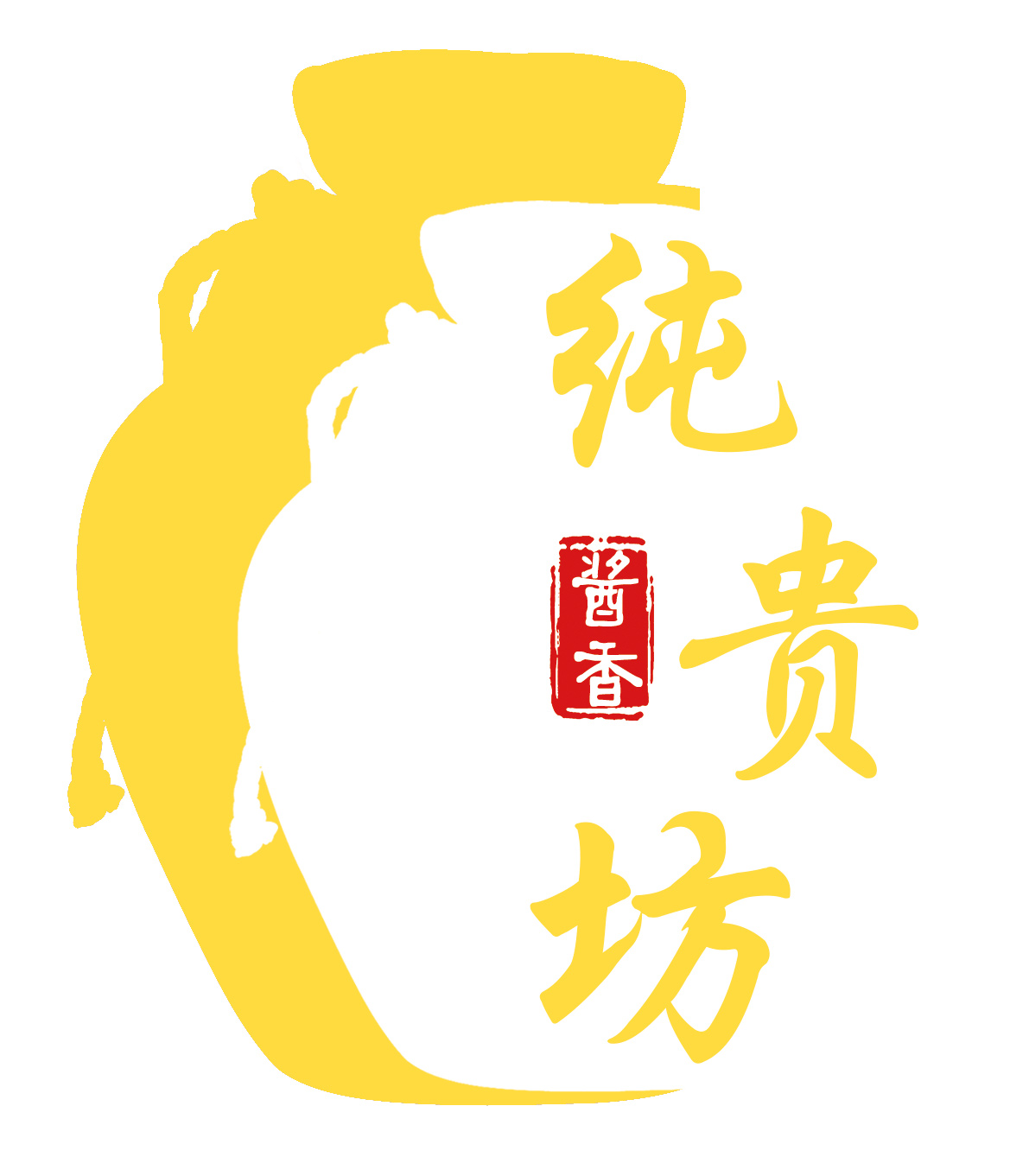 純貴坊酒業(yè)
純貴坊酒業(yè)
